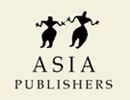|
Among the ducks, along the river, quiet tears flow
Nguyen Ngoc Tu could have seen it as a chance for some publicity when she was summoned to appear before the Vietnamese Committee of Ideological Education after her novel was published last year.
But for Nguyen, the author of “The Endless Fields,” the incident was a shock.
For weeks she suffered from serious nausea, not knowing why she had been branded as a dissident writer by the socialist authorities. Her novel is far from being critical of the government. It is the story of a family who travel from one island to another along the Mekong River, raising ducks.
In their summons, however, the authorities criticized Nguyen’s novel, saying the book “fails to present a model of hope.”
Some on the conservative Vietnamese literary scene shared that opinion and expressed the view that her work betrayed the conventional ethics and revolutionary ideals pursued in socialist literature in Vietnam.
For the public, however, the book was a sensation, selling over 80,000 copies in a country where the notion of a best-seller barely exists in the local publishing industry.
It took months before Nguyen finally realized that a story isn’t always interpreted by the readers in the ways that the writer intended.
“I don’t know why it took so long for me to realize that anyone with their own visions and philosophy has the freedom to make their own judgments about what they read,” said Nguyen, on a recent visit to Seoul after her novel was translated into Korean. “Government authorities who possess power share the same freedom of judgment.”
Perhaps Nguyen was an easy target.
At 29, she had no academic training in literature, having grown up in a rural farming village.
Or maybe the summons was a sign of discontent by the Vietnamese authorities. In the novel, a young woman offers sex to government officials in order to save the family’s ducks from slaughter after they are found to be infected with bird flu.
However, the controversy didn’t stop the Vietnamese Writer’s Association from granting Nguyen the nation’s most prestigious national literary prize last year. She is the youngest writer ever to receive the award.
The book is a visceral sketch of the desolate reality faced by many Vietnamese rural villages, which are mired in poverty and drought.
The numb tone of the 18-year old narrator, who shuts herself off from the outside world except when she is with her little brother Thien, is so acute that the stark depictions of the urban landscape in post-war Vietnamese literature might seem innocent compared to this novel.
The story constantly creates an atmosphere of emotional suffocation by refraining from any kind of rose-tinted nostalgia.
At one point the narrator writes, “Our nomadic life forced us to ignore any sense of affection we might develop in our mind, so that we wouldn’t feel sad when we packed our bags, so we could leave freely with an absent mind and follow the river streams and not love anyone. We didn’t have any sense of home, not even as much as the ducks had toward the fields.”
Nguyen says, “I wrote the story asking myself what it means to possess a grudge toward someone and how to release that,” she says.
The book also has a connection with Korea. Over half the Vietnamese women who marry men from Korean farming villages, are from the Mekong Delta, the setting of Nguyen’s novel.
While the book is a poignant portrait of poverty, it’s also a rare example of a novel translated into Korean that depicts contemporary conditions in Vietnam.
By Park Soo-mee Staff Writer
|

 03/25
03/25 

















